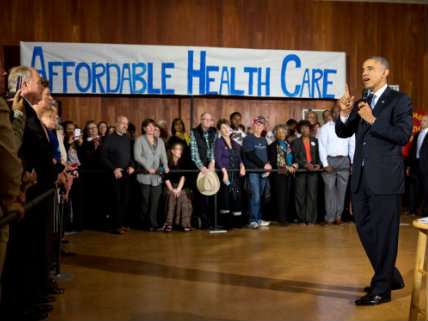Premiums to Rise For Obamacare's Cheapest Plans

What's really going on with Obamacare premium prices? Are they going up? Going down? Well, ah, yes. The best answer is that it's complicated; it depends on which premiums you're looking at, in what areas of the country, and when.
Back in September, a Kaiser Family Foundation study found that, based on a study of 16 major metro areas, that "benchmark silver plans"—the second cheapest plans in the middle or "silver" tier of health insurance available through the law's exchanges—would drop by 1 percent, on average. Plans in some places, like Nashville, would rise, but overall the price was going down just a little.
Great news! Obamacare premiums are going down! Or are they?
Last week, Jed Graham of Investor's Business Daily reported that, after looking at premium prices in the largest city in 15 different states, plus Washington, D.C., he found that the cost of the cheapest "bronze" plans—the lowest tier of coverage available on the exchanges—would rise by 14 percent next year.
In some cities, Graham reports, they'll go up by a lot more than that:
In Seattle, the cost of the cheapest bronze plan, after subsidies, will soar 64%, from $60 to $98 per month, for individuals at this income level. Some other cities seeing notable gains include Providence (up 38%, from $72 to $99 per month); Los Angeles (up 27%, from $88 to $111); Las Vegas (up 22%, from $100 to $122); and New York (up 18%, from $97 to $114).
Of the people who picked bronze-level plans, Graham notes, 39 percent picked the cheapest option. So this could impact quite a few people.
Depending on how you measure it, then, plan premiums are either going down or up in various parts of the country.
What we still don't really know, though, is what the overall picture looks like, either in terms of the plans that are on offer or the plans that people are actually picking for themselves. That's because a lot of information about premiums and subsidy amounts, especially in the federal exchanges, is on hold until the middle of next month.
Only then will we actually get a complete look at the various costs and options. The timing isn't an accident either. Last year's open enrollment period started in October. This year's open enrollment, and thus the release of the information it makes available, was delayed until just after the election.
